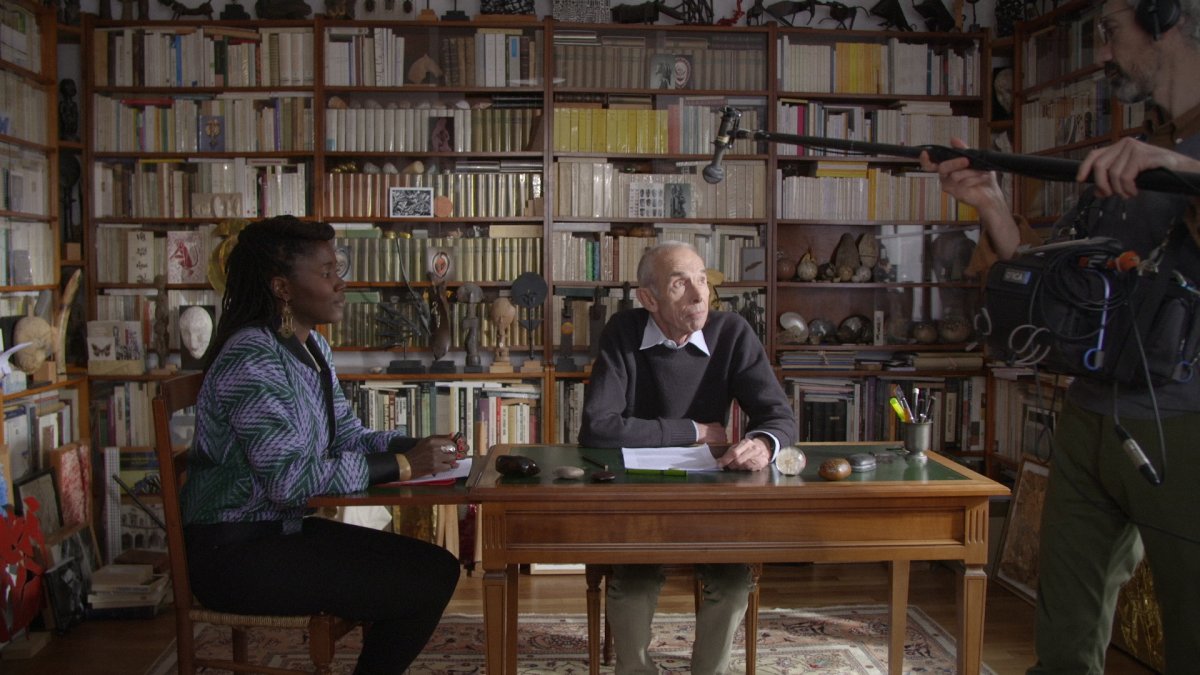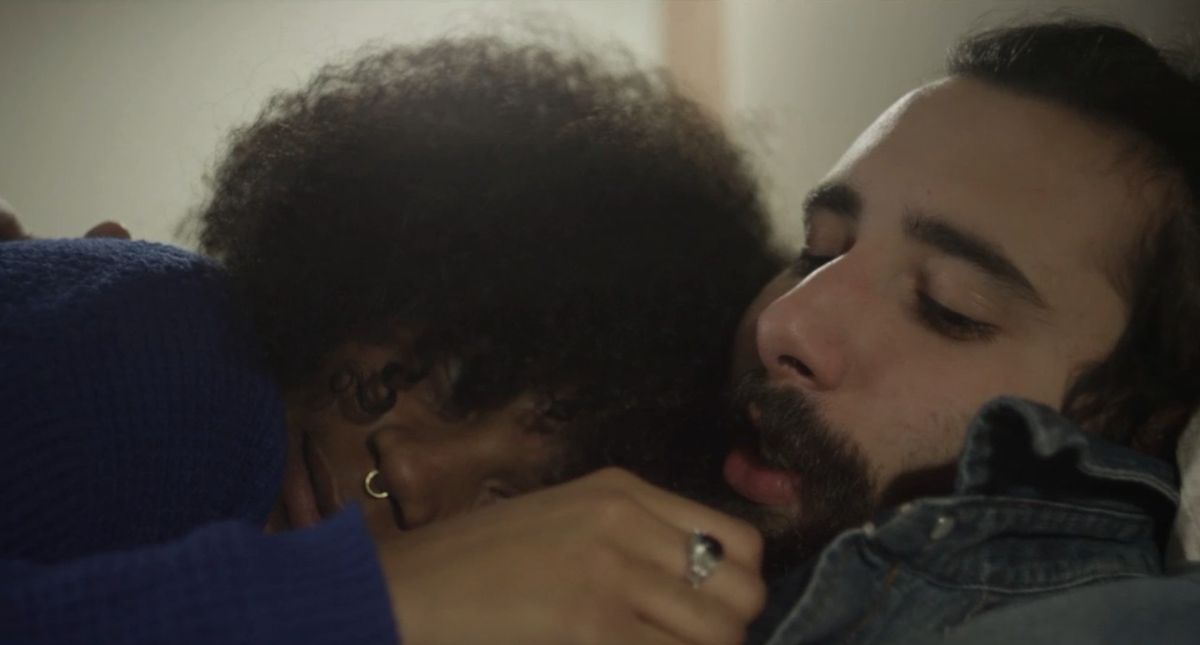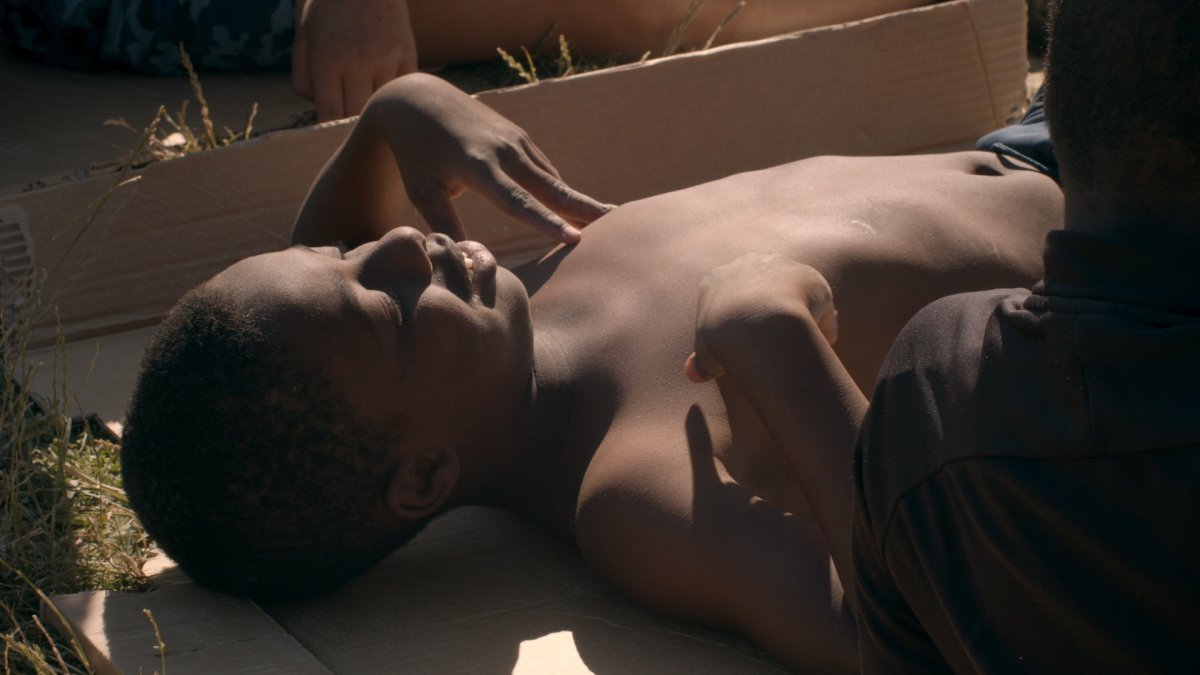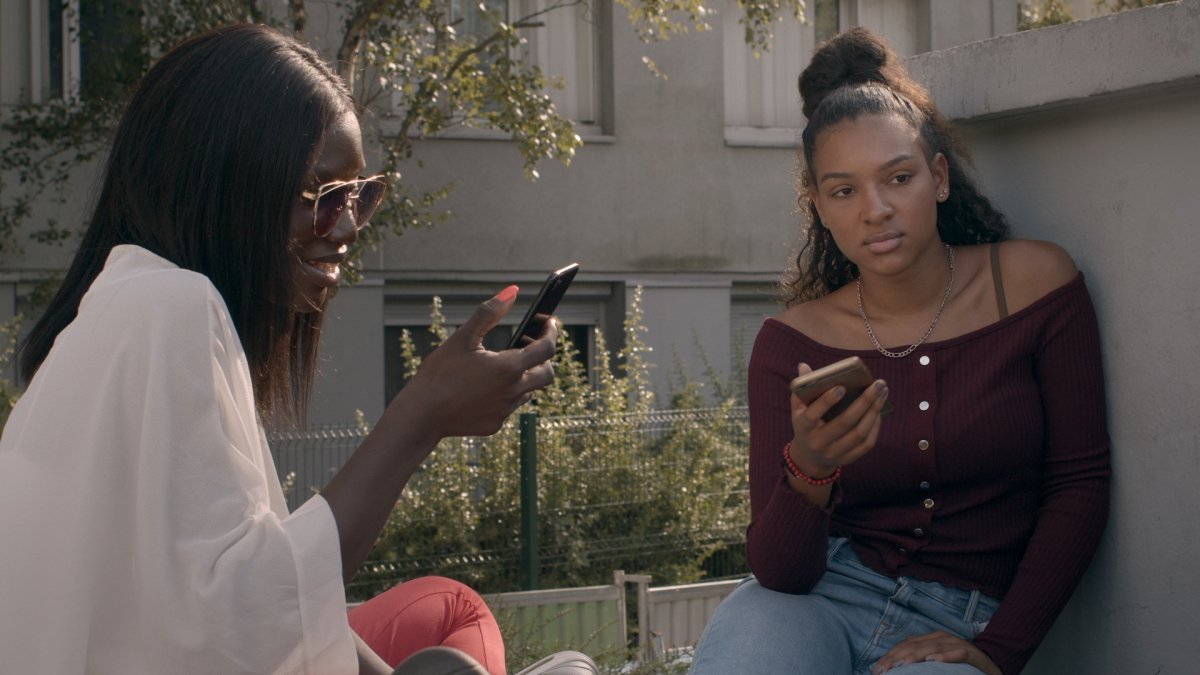'Not Just the Filmer Filming the Filmed': The Ethical Softness of Alice Diop's Documentaries

There is something called the Paris Syndrome, under which, tourists—mostly Japanese and eastern Asian tourists—experience a deep sense of dismay and disappointment when they visit the city of Paris, because what they see doesn’t quite live up to the expectations they had had of the city. Watching Alice Diop’s documentaries does the opposite for me. They reveal something I have never known about Paris and its suburbs. And it leaves me in awe.
Diop, who made her first film, La Tour du Monde, in 2005, was born to Senegalese immigrants and grew up in the banlieues—the suburbs of Paris. The world in her films is far away from the Paris of cute coffee shops and the magic hour when the lights on the Eiffel Tower glitter on. In her films, the banlieues come alive and we meet immigrants, health workers, aspiring actors—people who can never take for granted the dreams and clichés the many images of Paris have fed us. With deep intimacy, she films immigrants, first-generation citizens and workers whose lives and dreams are forever caught within the many fault lines of racism and colonialism.
Her films emerge from a space of deep intimacy, as they connect seemingly disparate images in search of memories that have not been memorialized. Hers is a filmmaking that creates an archive of stories that we haven’t been listening to. It also builds memorials for lives—like her mother’s—that have gone unrecorded and unattended. Her latest documentary, Nous (We, 2020), premiered at the 2021 Berlinale, where it won the Encounters Grand Prize. It cuts across Paris and its suburbs and tells stories of immigrants, and the people who orbit around them. It is a film that captures disparate lives, memorializes their labor, and builds a monument to the mundane, as the RER B commuter train snakes through the length of the city.
The film, which was recently acquired by Mubi, is presently playing on the streaming platform along with Diop’s Vers la tendresse (Towards Tenderness, 2016), which watches on as young men get sucked up in toxic masculinity and navigate what seems an inescapable trap of machismo with momentary tenderness and sparks of empathy. Also on the lineup is La permanence (On Call, 2016), a masterful vérité documentary set in a medical center that serves refugees and undocumented, uninsured immigrants who, traumatized by the travails of their daily lives, suffer from various physical and mental ailments. La mort de Danton (The Death of Danton, 2011), Diop’s feature debut, centers its narrative around a young Black man from the banlieues, studying to be an actor in Cours Simon. It looks at how his creative dreams always meet with resistance from the roles and types the larger French society wants to reduce him to; as much he dreams of playing the eponymous protagonist of a Büchner play, he is diminished to playing servile stereotypes. Also streaming is RER B (2017), Diop’s dreamy capture of French artist Benoît Peyrucq’s watercolor reimagination of the RER B train, a recurring motif in her films—the connective tissue between her lived Paris and the heightened cliché of Paris.
Forever resisting the idea of France (and larger Europe) being some sort of a post-race, unbiased utopia with free-flowing resources and healthcare, Diop’s films don’t expand centers to include margins. Instead, they create new centers—centers her world revolves around, centers that make our worlds go around.
She sat down for a chat with Documentary just before the retrospective of her films started streaming on Mubi. The interview has been edited for length and clarity.

DOCUMENTARY: Let’s start from the very beginning. What made you want to be a filmmaker?
ALICE DIOP: I studied history, sociology and anthropology at university. I quickly realized that the [academic] discoveries I was making were going to be very restricted in context, but cinema could give them a larger scope.
D: What were you studying?
AD: I was studying colonial history at the Sorbonne, which is not a history that is not passed down. It’s not really spoken of. This was 20 years ago and it was even less dealt with, at that time, than it is now. This study of colonial history really enlightened me. It also made me realize that within the academy, this knowledge was going to be very restricted. Cinema would offer a larger, more democratic, more sensitive discussion of these questions, that I believe would be politically useful to all of French society.
D: Were there any particular filmmakers who inspired you?
AD: I became a filmmaker because I encountered the work of filmmakers like Frederick Wiseman, who showed me that it was possible to use cinema as a tool for historical, sociological, political, anthropological reflection.
D: And what kind of films did you set out to make?
AD: I grew up in the banlieues—the Paris suburbs—which was an area that was often represented by people who didn’t live there. To make films was also, for me, a way to produce discourse from inside and from within the intimate sphere of private lives of people I grew up with. And to produce discourse about myself and my own intimate sphere. The films I make always start from intimacy, from people’s private lives. Often, these were things that had only been told or shown by outsiders. So making films was a way to explore what happens when you say things or show things about yourself, and how that changes trajectories. What happens when you make things visible after they have been made invisible.
D: The intimacy in your films is startling. Whether it be the patients in La permanence, or Ismael in Nous, or even your sister, who, as a healthcare worker, makes home visits to the ailing elderly. You make yourself so invisible, yet so close. Almost like you are a part of the air. How do you do that?
AD: Before filming someone, I spend a lot of time with them. I couldn’t film someone with whom I don’t have a relationship, and I film from that relationship. So even if you don’t see my body or hear my voice, my way of filming, my way of getting close to someone with a camera, really translates the relationship [into my films].
D: Can you break that down for me?
AD: So, for instance, Ismael is not someone that I met so I could film him. I filmed him because I met him, and he’s someone that I still know, and am still in touch with. Obviously, that’s the case with my sister too. The manner [in which] I film only translates an existing encounter or a pre-existing relationship. That is always at the source of why I’m filming.
D: Do you obliterate the “I” completely, then?
AD: Actually, I’m very present. I’m always present. It’s there in the way I direct the framing. It’s there in the way that I’m filming overall.
D: We have begun to talk deeply, in an industry-wide way, about a filmmaker’s duty of care and responsibility towards the participants, and that is something you’ve been doing from your first film. What does that duty of care look like for you?
AD: For me, it’s a form of ethics. It’s the central ethic of my practice as a filmmaker. And it’s not a contractual obligation. It’s [my] relationship with ethics, with respect, and with the awareness of having the power to configure the stories of people’s lives. Knowing that having a camera and looking at others [through it] is a form of power.
I’m surprised to hear that this is only a recent debate because for me, this is something that has always been there in the form of documentary. In Chronicle of a Summer (1961), Jean Rouch and Edgar Morin show some of their protagonists’ images of themselves. For me, that’s the foundation of the relationship between filmed and filmer. That’s so essential. That’s really the essence of documentary. A documentary is a self-portrait of the person filming. I can’t stand documentary filmmakers who…there are many famous ones but I won’t name names—
D: There are just too many...
AD: I can’t stand these documentary filmmakers who look at everything from above as if they were at the zoo, as if they’re looking at insects. That just doesn’t interest me. And that’s why Frederick Wiseman’s films and the ethics of those films have been so important to me. There’s an ethic in his gaze. Many filmmakers don’t ask themselves these questions, and those are films that I’m not interested in.

D: How do you work with your protagonists? Say, Ismael.
AD: I took a full year before I filmed anything with him. Therein lies the question of ethics and responsibility. I was going to be filming a person who was in such a violent sociological place, I needed to find the right perspective from which I could film him, and not engage in a kind of visual pornography. It took me a year to find that place, to construct that place, so that it would not be an opportunistic situation where I’m a woman just coming along to film this guy. We were in a real conversation where he had an opportunity to articulate what it is that he wanted to show of himself, to have filmed.
D: And what does this conversation look like?
AD: You know, it’s really this idea of exchange, not just the filmer filming the filmed. Like I said, it’s not something that’s necessarily contractually spelled out, but a way of getting to a point where the person being filmed finds a way in which they want to bear witness to their own life. To come to that point really takes time.
D: And what if he had said no? Say, six months in, and he said, “No, I don’t want to be filmed.”?
AD: Of course, if he had said no, there wouldn’t have been a film. But, what I’m trying to say is that it’s not simply a question of, Do you want to be filmed? I’ve never really asked this question. It’s something that’s articulated around the desire for the two of us to make a film together.
It’s about the encounter between two desires—the desire for him to bear witness to something, and my desire [politically] to record that bearing witness. So, it’s not a journalistic approach, it’s more like a life approach.
I have never asked that question. Because who wants to be filmed? No one wants to be filmed except egocentric people, and those are not the people that I necessarily want to film. Accepting to be filmed has to go beyond an ego-driven desire.
D: I know you’re working on a fiction film. Is there any difference in the way you approach fiction and documentary?
AD: Not really, I always intuitively knew that there’s not that much of a difference between documentary and fiction. For me, the mise-en-scène is so fundamental; the form of cinema is so central to what I do. I’m not a journalist who’s dealing with a specific subject, I deeply come from the cinema vérité tradition that starts with filmmakers like Jean Rouch. It’s a type of filmmaking where the mise-en-scène is as important in documentary as it is in fiction. Now that I’ve made a fiction film, I know that fiction was the best form suited for me to say what I had to say, but it involved the same kind of research, the same way of working.
D: But you’re dealing with actors…
AD: Of course it’s a little bit different because you have actors and you have a screenplay. But even in my way of writing the screenplay, I ensured that things remained plastic and malleable so it would allow me to bring in the real, just the way that I do with documentary.

D: This is a strange question to ask, especially since you’re still making art, but you’re having a retrospective, so maybe it’s a fitting question. What does legacy look like for you? As a filmmaker and an artist?
AD: I have no idea [chuckles]. Each film I have made, was made in a very organic, very intuitive way. As answers to my questions, at the moment. These are political questions that existed before me, and I hope will exist after me.
It took me so long to admit to myself that I was a filmmaker because—coming from where I come from, as a woman, as a Black woman, as a person who’s not an industry insider, coming from where I have lived—there was nothing in place to make me feel legitimate. I entered cinema as a kind of a pirate, as a way to deal with my rage, my melancholy, my pain, my sadness, my despair at inhabiting a society that refused to look at me and at my family. And at people like us.
D: How do you look back at your body of work?
AD: Each film was a visceral thing. I never said to myself, Oh, I’m going to make a body of work. I’ve been making films for 20 years; I’ve made five films, I’m 43. When I look back at what I tried to do, I can make some sense of it. I can see now that I tried to create a supplement to the French national narrative. But that was not a conscious thing. And I think it’s good that it wasn’t conscious.
D: And what does the road forward look like?
AD: I think I’m going to continue [like this], and perhaps it will be in a more peaceful way. Maybe that has to do with maturity. I hope some of the questions that I raised will be picked up by others, by younger people.
I’ll continue with telling stories of my world, but I don’t know exactly how [yet]. I plan on continuing to try and listen to my questions of the moment, and always trying to make those questions become universal ones that can speak to everyone.
D: Thank you. And please never stop.
The author would like to thank Nicholas Elliott for being an excellent and patient translator.
Tales from the Periphery: The Films of Alice Diop is currently streaming on Mubi.
Bedatri D. Choudhury is Managing Editor of Documentary magazine. Born and raised in India, she lives in New York City




